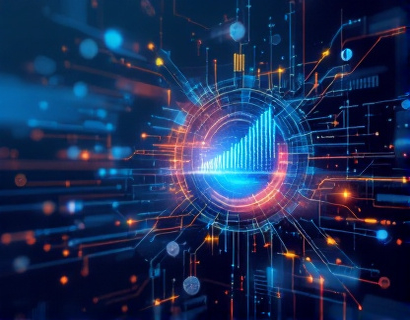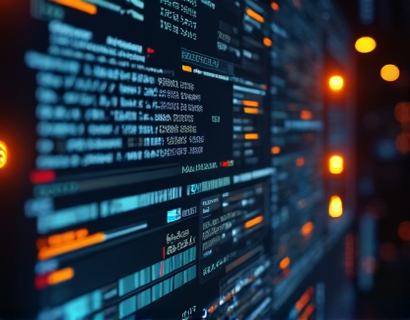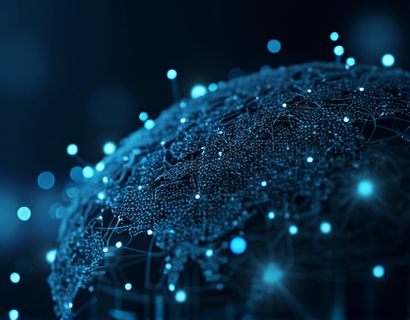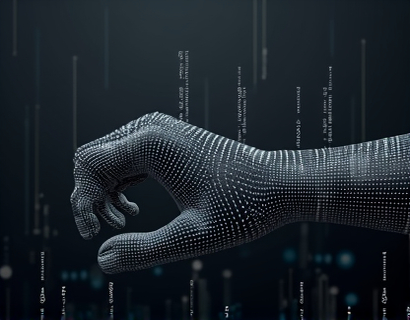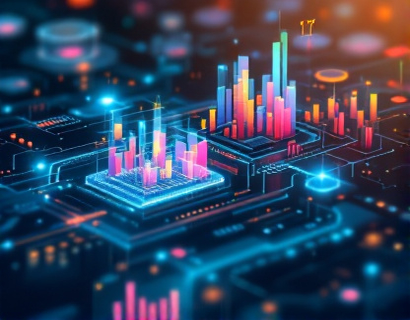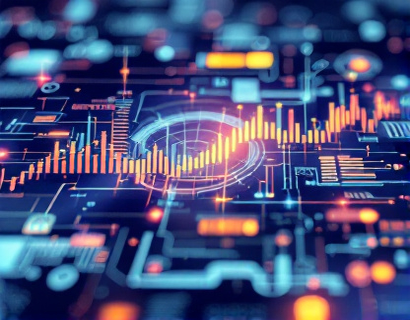AI and Crypto: Transforming Digital Engagement in the Crypto Ecosystem
The intersection of artificial intelligence (AI) and cryptocurrency is ushering in a new era of digital engagement, redefining how users interact with apps and services within the crypto ecosystem. This transformative combination is not just about enhancing user experiences but also about creating more secure, efficient, and innovative digital environments. As tech-savvy individuals and enthusiasts delve deeper into the realms of cryptocurrency and AI, understanding the synergy between these two technologies becomes crucial for anyone looking to stay ahead in the rapidly evolving digital landscape.
Understanding AI in the Crypto Context
Artificial intelligence, defined by its ability to simulate human intelligence processes such as learning, reasoning, and self-correction, plays a pivotal role in the crypto space. In this context, AI is utilized to analyze vast amounts of data, predict market trends, automate trading strategies, and enhance security measures. The integration of AI into cryptocurrency operations brings about a level of sophistication and efficiency that traditional systems cannot match.
One of the primary applications of AI in crypto is in market analysis and prediction. Machine learning algorithms can process historical data, identify patterns, and forecast future price movements with a degree of accuracy that surpasses human capabilities. This predictive power is invaluable for investors seeking to make informed decisions and maximize their returns. Moreover, AI-driven bots can execute trades at optimal times, reducing emotional biases and increasing the likelihood of profitable outcomes.
Enhancing Security with AI
Security is a paramount concern in the crypto world, where the risk of fraud, hacking, and theft is ever-present. AI technologies offer robust solutions to bolster security protocols. For instance, AI-powered systems can detect anomalies in transaction patterns, identifying potential fraudulent activities in real-time. These systems learn from past incidents, continuously improving their ability to spot and thwart malicious attempts.
Additionally, AI can enhance the security of digital wallets and exchanges through biometric authentication and behavioral analysis. By analyzing user behavior, AI can detect unusual activities and trigger alerts, providing an extra layer of protection. This proactive approach to security not only safeguards user assets but also builds trust in the crypto ecosystem, encouraging more individuals to adopt and engage with digital currencies.
AI-Driven User Interfaces and Experiences
The user experience (UX) in the crypto ecosystem is being revolutionized by AI. Intelligent interfaces adapt to user preferences and behaviors, offering personalized recommendations and streamlined interactions. For example, AI can analyze a user's trading history and suggest tailored investment strategies, or recommend specific cryptocurrencies based on their risk tolerance and investment goals.
Chatbots powered by natural language processing (NLP) provide instant customer support, answering queries and guiding users through complex processes with ease. These AI-driven assistants are available 24/7, ensuring that users receive timely assistance without delays. The seamless integration of AI into user interfaces not only enhances convenience but also empowers users to navigate the crypto space with greater confidence and efficiency.
Decentralized Applications and AI
Decentralized applications (dApps) are at the forefront of the crypto revolution, offering decentralized alternatives to traditional centralized services. AI plays a crucial role in the development and functionality of dApps. For instance, AI can optimize smart contracts, ensuring they execute as intended while minimizing the risk of errors or vulnerabilities. This optimization is achieved through rigorous testing and simulation, where AI algorithms identify potential issues and suggest improvements.
Moreover, AI can enhance the user experience within dApps by providing predictive analytics and personalized services. By analyzing user interactions and preferences, AI can curate content and features that align with individual needs, fostering a more engaging and satisfying experience. This level of personalization is particularly valuable in decentralized finance (DeFi) platforms, where users require intuitive and efficient tools to manage their assets and transactions.
AI in Cryptocurrency Development and Innovation
The development of new cryptocurrencies and blockchain technologies is also being driven by AI. Developers are leveraging AI to design more robust and scalable blockchain architectures. For example, AI can optimize consensus mechanisms, ensuring faster transaction processing and lower energy consumption. This innovation is critical for the widespread adoption of blockchain technology, as it addresses some of the most significant challenges faced by current systems.
Furthermore, AI facilitates the creation of utility tokens and security tokens by analyzing market demands and regulatory landscapes. By predicting user needs and compliance requirements, AI helps developers design tokens that meet specific use cases and regulatory standards. This strategic approach not only enhances the functionality of tokens but also increases their appeal to investors and users alike.
Challenges and Considerations
While the integration of AI and crypto offers numerous benefits, it is essential to acknowledge the challenges and considerations involved. One of the primary concerns is the regulatory environment. As AI and crypto continue to evolve, regulatory bodies are grappling with how to oversee these technologies. Compliance with regulations is crucial to ensure that AI-driven crypto solutions operate within legal frameworks and maintain user trust.
Another challenge is the ethical use of AI. Ensuring that AI systems are transparent, fair, and free from bias is paramount. The crypto community must prioritize ethical AI practices to prevent misuse and build a reputable and trustworthy ecosystem. This includes implementing robust data privacy measures and ensuring that AI algorithms are auditable and explainable.
Future Prospects
The future of AI and crypto is bright, with numerous opportunities for further innovation and growth. As AI technologies advance, we can expect even more sophisticated applications in the crypto space. For instance, the integration of AI with quantum computing could lead to breakthroughs in cryptography, enhancing security and computational capabilities. Additionally, the development of AI-driven virtual assistants and virtual reality (VR) experiences could redefine how users interact with crypto platforms, making the digital space more immersive and interactive.
The synergy between AI and crypto is not just about technological advancements but also about creating a more inclusive and accessible digital ecosystem. By leveraging AI, the crypto community can democratize access to financial services, providing opportunities for underserved populations and fostering financial inclusion on a global scale.
In conclusion, the combination of AI and crypto is transforming digital engagement in profound ways. From enhancing security and personalizing user experiences to driving innovation in blockchain development, the potential of this partnership is vast. As the crypto and AI revolutions continue to unfold, staying informed and adaptable will be key to navigating and thriving in this dynamic digital landscape.

























